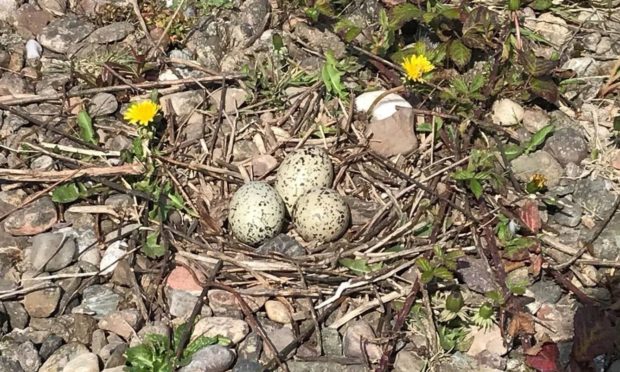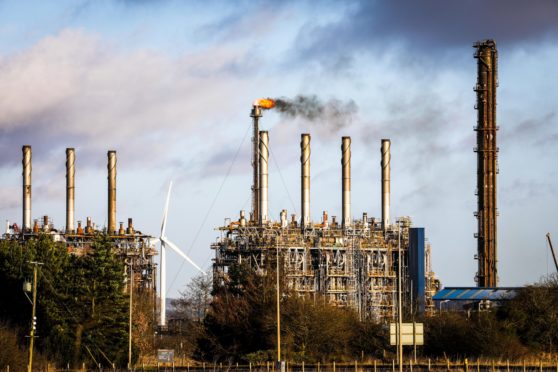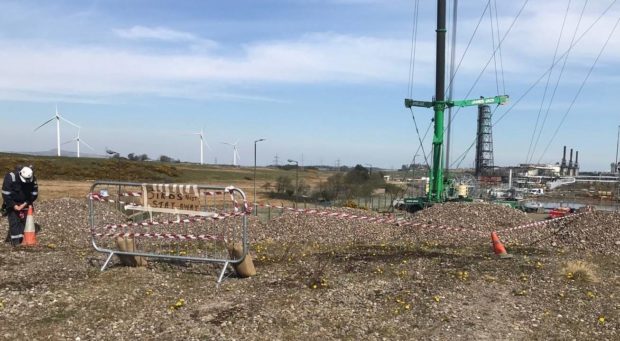Workers planning ExxonMobil’s £140 million upgrade at Mossmorran have cordoned off part of the site after finding protected birds’ eggs.
Contracters discovered a nest belonging to an oystercatcher on the edge of the site near Cowdenbeath.
The three eggs are protected by law and cannot be disturbed until they hatch.
Because the discovery is on the fringes of the Fife Ethylene Plant, it is not affecting the multi-million pound improvement project that began on April 12.
However, the area has been cordoned off and the company has pledged not to disturb the nest until the chicks have left.
Warning signs telling workers to stay away from the area have also been erected.
The action follows consultation with environmental advisors on site.
‘Working carefully around the bird’
Contract engineer Michael Ridgewell said: “This was a great spot by our colleague who acted quickly to ensure the safety of the nest and eggs.
“It is not uncommon that birds choose to make their nests on our towers and land, and the barriers will be kept in place until the hatchlings have left the nest.
“We have seen all sorts of wildlife here from hares and foxes to birds of prey and it’s nice to see the number of animals that have made our site their home.”
Michael added: “We are working carefully around the bird and its nest and the area is fully barriered off.
“It won’t hold up any work.”
Conservation
Oystercatchers are on the RSPB’s amber list, meaning it is the second most critical group when it comes to conservation.
The black and white wading birds tend to breed on the UK coasts.
However, more of them have started breeding inland over the last 50 years or so.
There are thought to be around 110,000 pairs of oystercatchers across the UK, but considerably more during the breeding season.
ExxonMobil’s £140m investment
The £140m investment by ExxonMobil involves around 1,000 workers.
It is hoped the project will end years of flaring misery for communities by improving reliability.
Work will include the installation of a noise-reducing flare tip within the next few weeks.
Exxon has also committed to install a full-enclosed ground flare next year.
It claims this will reduce the use of the elevated flare by 98%.
The work was due to start last year but was delayed due to the coronavirus pandemic.



